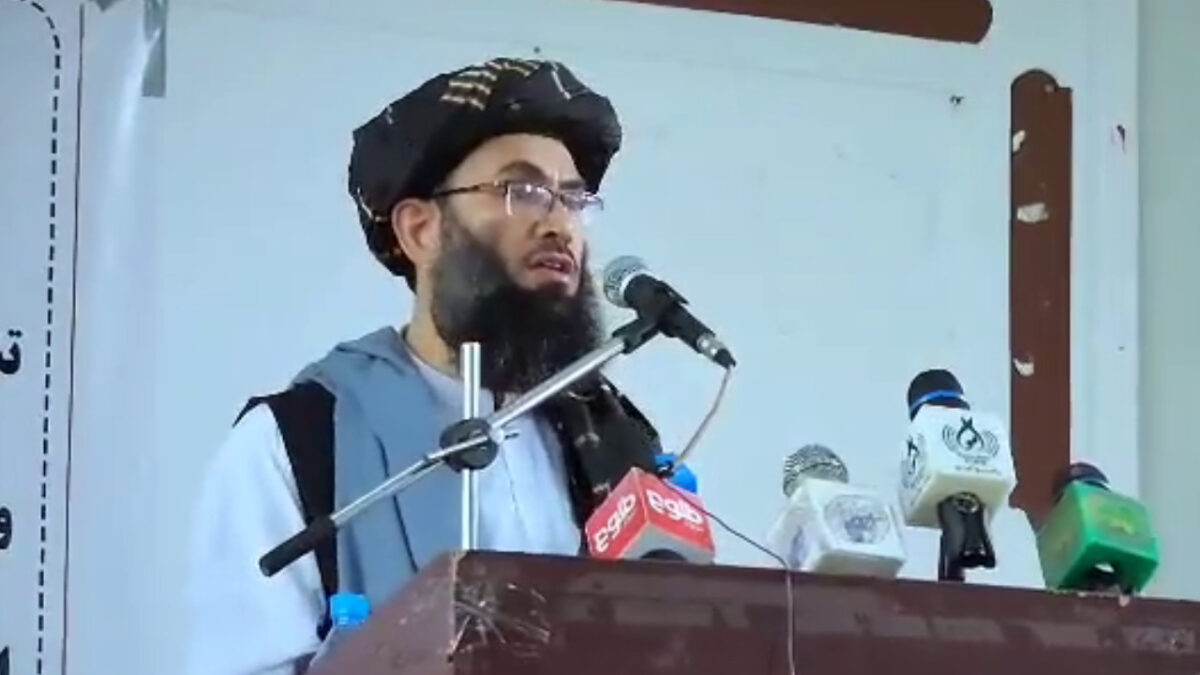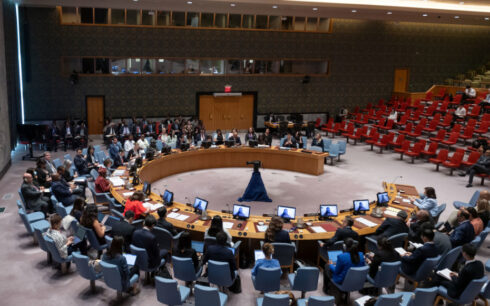The Taliban’s Minister for the Promotion of Virtue and Prevention of Vice, Khalid Hanafi, has resumed his provincial tours to oversee the implementation of their controversial morality law, based on which, severe restrictions have been imposed on women’s rights.
During his recent visit to Helmand province, Hanafi urged religious scholars to use their sermons to educate the public about the law’s provisions.
Hanafi also traveled to Uruzgan province as part of his efforts to enforce the law, which has drawn widespread criticism both domestically and internationally.
According to Taliban officials, their leader Hibatullah Akhundzada has mandated the creation of joint committees in every province to implement the law. These committees include provincial governors, intelligence chiefs, police commanders, education directors, and other local officials.
“These committees will meet over the next two weeks to discuss enforcement strategies and report their results within two months,” said Saif-ul-Islam Khyber, spokesperson for the Taliban’s vice and virtue ministry.
During a meeting in Helmand that included Hanafi, provincial officials, and security leaders, participants emphasized the full implementation of the law across government institutions and its dissemination to the public through religious leaders.
“All provisions of the Virtue and Vice law will be implemented in government offices and communicated to the public through scholars,” said Abdul Rahman Muslim Kundoozi, Helmand’s Taliban governor.
Backlash from citizens and activists
The Taliban’s push to enforce the law has been met with criticism, particularly from women’s rights advocates who argue that it severely restricts freedoms and entrenches gender apartheid.
Masooda Kohistani, a women’s rights activist, said the Taliban’s focus on enforcing these laws further alienates the Afghan people. “The minister’s visits and emphasis on misogynistic policies deepen despair among the population. It’s crucial that international media and institutions recognize this as gender apartheid and push for accountability,” she said.
Benafsha, a resident of Farah province, shared her frustration. “Since this law was introduced, life for us women has become extremely difficult. We can’t even leave our homes freely anymore,” she said.
The Taliban’s morality law, issued in August, grants religious enforcers the authority to detain and punish individuals deemed in violation of the rules. Among its most contentious provisions is the prohibition of women’s voices being audible outside their homes, a measure that has drawn sharp criticism from human rights groups worldwide.
One of the law’s primary mandates is the enforcement of strict dress codes for women. Article 13 of the law stipulates that women must cover their entire bodies, including their faces, to avoid causing “temptation.” It also declares women’s voices to be “awrah,” a term referring to parts of the body that must be concealed under Islamic law.
“If a woman or girl leaves her home for any reason, she must conceal her voice, face, and body,” states a clause in Article 13. Male officials, referred to as “virtue enforcers,” have been empowered to stop and penalize women who fail to comply.
The decree also bans men and women from looking at members of the opposite sex outside their immediate families, labeling such interactions as “haram.”
The law has faced widespread condemnation from the international community, with critics calling it a blatant violation of women’s rights and a step toward institutionalized gender oppression. Nonetheless, Taliban officials have repeatedly defended the law as essential to maintaining their interpretation of Islamic values.
This isn’t Hanafi’s first effort to oversee the law’s implementation. In September, he visited several northern provinces, including Badghis, Faryab, Jawzjan, Takhar, and Balkh, to monitor compliance.





